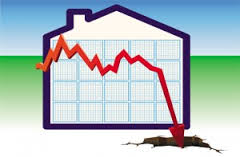Personal Finance

For many people, the past decade has been a time of anxiety, fear, and frustration. My personal emotion was one of frustration. I was frustrated with the lack of accountability, transparency, and astuteness of the financial industry. The idea of a financial adviser not having any accountability for the welfare of my investments and more importantly, the astuteness to warn me of possible dangers in my portfolio mix was a constant bother. It bothered me so much that I stopped investing in the public markets.
I came across the private equity market due to some of my wealthy friends who seemed to have that “inside track” or being invited to participate in “President’s Lists”. The problem with this market, I found it shrouded in secrecy and had no or little transparency. For the unsophisticated investor, you took your chances with little recourse or liquidity if things went bad.
No wonder people have had to be contented with low returning products like GICs or term deposits. We saw our nest eggs shrink and our retirement line moved farther ahead. We should be embracing our retirement years instead of thinking that being a greeter in a large retail chain seems like a sad reality. There must be a balance between private and public markets.
I believe that many people are like me; hard-working, honest, and want a fair return on their savings. I have also learned that there are great investments to be had if you’re willing to look and are financially savvy. The question is what if you don’t know where to look? What if someone could provide a service that could manage investments and were committed to being astute, accountable, and transparent?
Creating TriView has been a labour of love. We found the right partners that share the same vision but bring different strengths to the table. From an experienced portfolio manager and Investment Bankers that ensure we offer the right product to the right client. These partners have combined to raise over $6 billion in the private market space, have reviewed hundreds of opportunities and have the discipline when to invest and when to walk. All of our investments opportunities are vetted before they are ever offered to our clients.
We have a former Securities Commission Enforcement Officer dedicated to compliance and ensuring that our clients have a well-balanced, diversified portfolio that is personally designed for their needs. Lastly, we want to share our knowledge with our clients. We don’t want you to simply trust us with your money; we want to educate you so we earn your trust through providing solid returns while protecting your principal. This is about being transparent and accountable.
We see a tremendous opportunity to invest in private and alternative investments over the next five years. We want to offer you another option to your current financial portfolio. Contact us today at www.triviewcapital.com to learn more about why the most astute and conservative investors, pension & endowment funds, are increasingly moving assets into this financial sector.
Craig Burrows
Co-Founder, President & CEO, TriView Capital Ltd
TriView Capital Ltd. is a registered EMD across Western Canada
Is a looming war coincident with a depressed gold price and a stock market peak an example of — staring into the great abyss?
From Peter Cooper:
“A five-year regime of artificially low interest rates is responsible for a bubble in stocks, bonds, real estate, emerging markets and many other asset classes…What would you rather own when staring into the great abyss?”
 James Rickards regarding the crisis with LTCM in 1998 and the banking crisis in 2008:
James Rickards regarding the crisis with LTCM in 1998 and the banking crisis in 2008:
“What the crisis of 1998 and the crisis of 2008 had in common and what the next crisis will have in common is that regulators and risk managers are using the wrong models to understand and measure risk. And if you have the wrong models you will get the wrong results every time. … So the system becomes very vulnerable to a rapid collapse. … That’s why I’m expecting another financial crisis rather sooner than later.”
James Rickards on the Fed and money printing:
“So the Fed is trying the same remedies: The money printing goes on and the banking system continues to inflate which is setting us up for an even bigger crisis.”
The world has looked over the edge of the great abyss many times before. Supposedly the financial world was close to collapse during the LTCM crisis and also during the Paulson TARP crisis. Regarding another great abyss from Zero Hedge:
“In front of 3 witnesses, Bank of England Governor Eddie George spoke to Nicholas J. Morrell (CEO of Lonmin Plc) after the Washington Agreement gold price explosion in Sept/Oct 1999. Mr. George said, ‘We looked into the abyss if the gold price rose further. A further rise would have taken down one or several trading houses, which might have taken down all the rest in their wake. Therefore at any price, at any cost, the central banks had to quell the gold price, manage it. It was very difficult to get the gold price under control but we have now succeeded. The US Fed was very active in getting the gold price down. So was the U.K.'”
And today leverage and the derivatives market is MANY times larger than it was in 1998-99.
And the geopolitical situation seems much more dangerous and unstable than in 1998-99.
And the groups in the middle-east are most definitely not “playing nice” with each other.
And many more nations are bypassing the use of the US dollar for international trading.
And the mood of the people, so it seems, in Europe, the U.S. and the U.K. is much darker and less confident than in the “dot-com” exuberance of 1999.
And 9-11 and all of the after-effects had not yet happened in 1998-99.
The next crisis/correction/crash might be far worse than the 2000 – 2002 debacles or the 2008 financial crisis.
Further, US stocks look like they are in a bubble similar to 1999 and 2000. Consider the following monthly chart of the S&P 500 Index since 1984. Notice the blue line peaks in 1987, 1994, 2000, 2007, and 2014. A major stock market peak every 7 years deserves our attention, especially since it is peaking along with dollar and bond bubbles (generational low interest rates), massive global QE, geopolitical disasters, foreign policy failures, and the probability of new and devastating wars.
From General Martin E. Dempsey, U.S. chairman of the Joint Chiefs of Staff regarding ISIS and expanding the war in Iraq and nearby countries:
“This is an organization that has an apocalyptic end-of-days strategic vision that will eventually have to be defeated.”
The same article goes on to state that:
“Dempsey noted that destroying ISIS will require ‘the application of all the tools of [U.S.] national power – diplomatic, economic, information, military.”
And “truly defeating ISIS would require full scale war that would involve fighting in Iraq and Syria.”
The looming war coincident with an all-time stock market peak and other distortions is the edge of the abyss. A new war, a derivative crash, a spike in crude oil prices, another scandal, a dollar collapse, or perhaps a failure to deliver on gold contracts could trigger a stock market correction/crash, another massive debt increase, and an upward spike in the price of gold.
Gold has gone down for nearly three years, while the stock market has gone up for well over five years. The reversal may not occur tomorrow or next month, but it will occur.
This is, in my opinion, a time for caution in the stock and bond markets and for purchases of gold and silver. It is better to leave the Wall Street party early than to crowd the exit doors with about 500 million others who overstayed their welcome at the Wall Street “stocks always go up” extravaganza.
Furthermore the “high-frequency-traders” can levitate the S&P and suppress gold prices for only so long. Eventually the prices for bonds, stocks and gold will be reset in accordance with the realities of massive “money printing,” exponentially increasing debt, generational-low interest rates, huge deficits, escalating war in the middle-east, and Asian purchases of physical (not paper) gold.
Market peaks, market crashes, political crises, wars, deficits, debts, and cycles of confidence and despair seem to be inevitable in our current financial structure.
Are you prepared?
Additional reading:
Alasdair Macleod Ukraine: A Perspective From Europe
Clive Maund: Will the US Succeed in Breaking Russia?
The DI: Black Swans on Final Approach
Washingtons Blog: Former Mafia Crime Boss
 RBC economist at Canada’s biggest bank says home prices could start falling in 2016 if interest rates return to more normal levels. And he warned that, in the meantime, what goes up will likely come down if salaries and incomes don’t keep pace.
RBC economist at Canada’s biggest bank says home prices could start falling in 2016 if interest rates return to more normal levels. And he warned that, in the meantime, what goes up will likely come down if salaries and incomes don’t keep pace.
 This past week, one of the most anticipated economic conferences kicked off. In attendance was the who’s who of world central banking and global financial markets hung on every word from keynote speeches by Janet Yellen, Chair of the U.S. Federal reserve, and Mario Draghi, president of the European Central Bank. The annual conference, which has been going on since 1978, is a chance for central bankers, finance ministers and academics to talk about the world economy in a public but informal setting.
This past week, one of the most anticipated economic conferences kicked off. In attendance was the who’s who of world central banking and global financial markets hung on every word from keynote speeches by Janet Yellen, Chair of the U.S. Federal reserve, and Mario Draghi, president of the European Central Bank. The annual conference, which has been going on since 1978, is a chance for central bankers, finance ministers and academics to talk about the world economy in a public but informal setting.
So where is this world renowned financial conference held…New York, London, Hong Kong, Geneva? Wrong on all accounts. Try Jackson Hole, Wyoming. Sounds very financial, particularly with its proximity to the financial hub of Idaho.
So why Jackson Hole? The Federal Reserve Bank of Kansas City has hosted an annual economic policy symposium at Jackson Lake Lodge since 1982. They chose Jackson Hole in 1982 because of its trout fishing, as they were trying to attract Paul Volcker, who was Chairman of the Federal Reserve and a keen fly-fisherman. Apparently, it worked.
The tone is low-key: Jackson Lake Lodge, the relatively spartan setting for the talks, remains open to the public throughout the event. And there is little chance of an 18-course dinner like the one consumed by G8 leaders a few years ago at a summit in Japan on ending starvation (not the best optics by the way). The event is formally known as the Federal Reserve Bank of Kansas City’s “Economic Symposium.”
In a textbook case of network effects, Volcker’s regular attendance attracted other policymakers and made the event an unequalled gathering for big economic hitters. Most conferences are hungry for attendance; Jackson Hole is by invitation only, and in recent years those invitations have become scarcer.
To maintain the relaxed atmosphere, reporters must observe what are now known as “Jackson Hole rules”: the proceedings are all on the record but all other remarks during the conference, such as mealtime conversations, are off the record.
Yellens’ Speech
Ms. Yellen broke little new ground in her speech. She reiterated the Fed’s basic guidance after its July meeting that holding short-term interest rates near zero remains necessary and useful to increase employment. She said the gap between current conditions and a return to full health was still “significant.”
Acknowledging the uncertainty surrounding this assessment, Ms. Yellen added that the Fed was prepared to adjust its stance as the economic evidence became clearer, either moving more quickly to raise rates or holding steady for even longer. She said the Fed expected to end the expansion of its bond holdings in October.
Some analysts viewed Ms. Yellen’s speech — along with the minutes of the Fed’s July meeting, released on Wednesday — as evidence that the Fed had become a little more likely to raise rates earlier, if the economy kept gaining strength. For us, it does not appear that Yellen has changed her core views and that rates will remain low, supporting equities in the near-to mid-term at the least.
Stay the Course
While we remain with significant cash at the ready if or when a true correction occurs, we continue to see outperformance by our core “cash rich” small-caps stocks in our Focus 8-12 stock portfolios. Sticking with strong, cash rich balance sheets and stocks with above average growth prospects over the next 1-3 years remains the right strategy.
Unlevered stocks that do not need external capital to grow are well positioned in both up and down markets. We continue to be very selective in our efforts to uncover these specific types of Small-Cap Growth stocks to our clients.
KeyStone’s Latest Reports Section
Disclaimer | ©2014 KeyStone Financial Publishing Corp.
 ETF.com: The mainland Chinese market, represented by the CSI 300, is up nearly 10 percent in the past month. What do you make of the recent surge in China A-shares? Are they a legitimate way to invest in China?
ETF.com: The mainland Chinese market, represented by the CSI 300, is up nearly 10 percent in the past month. What do you make of the recent surge in China A-shares? Are they a legitimate way to invest in China?
Marc Faber : I’ve written about this before. There are several reasons Chinese stocks are rising. First of all, there’s a huge pool of money that is floating around Asia. It’s Japanese, Korean institutions, Singapore, sovereign funds and so forth, and all the accumulated wealth among individual investors, which is very sizable nowadays.
Year-to-date, the markets that performed best were India, Indonesia, Thailand, Vietnam, the Philippines and I think Pakistan. These markets are up something between 15 and 25 percent. The money now looks at these markets and their valuations and the slowdown in economic growth in Asia, and they are aware that there are plenty of problems in China. But they also see that the Chinese market has grossly underperformed all the other Asian markets, and global investors see that the Chinese market has underperformed Europe and the U.S. So purely from an asset allocation point of view, money’s flowing into China.
The second reason is that the government implemented austerity measures initially. They also have this anticorruption drive which slows down economic activity very meaningfully. In some ways they got scared, so they’re easing monetary conditions. This easing of credit conditions has really pushed stock prices up.
The market in China—if you look at the last five, six years—has very little correlation to the U.S. or to other markets. It is conceivable that in a global market decline, Chinese stocks could actually rise.
What I argued for, for some time, is that the property market in China is weakening. In Hong Kong, property prices are down a little bit after having risen like crazy in the last 10 years; they’re down a little bit over the last 12 months. But property stocks in Hong Kong all sell at discounts around 40-45 percent to net asset value.
In other words, real estate prices would have to drop something like 30, 40 percent to really hurt the developers from a longer-term perspective. Of course, if property prices drop 30 percent, the stock prices of property developers will also go down somewhat, but not by 30 percent, because the market may have already discounted a lot of the future declining prices.
There are not many things I like in this world of inflated asset prices. But I’m just saying, if you want to play easy monetary policies in China, I think that Hong Kong shares are as good as anything else. As I said, some real estate companies I find reasonably attractive.
Read more @ http://www.etf.com/publications/alpha-think-tank/alpha-articles/22971-faber-hong-kong-real-estate-shares-attractive-hold-us-treasurys.html?bcn=YXR0TG9ja2VkQ29udGVudA==
Marc Faber is an international investor known for his uncanny predictions of the stock market and futures markets around the world.Dr. Doom also trades currencies and commodity futures like Gold and Oil.














